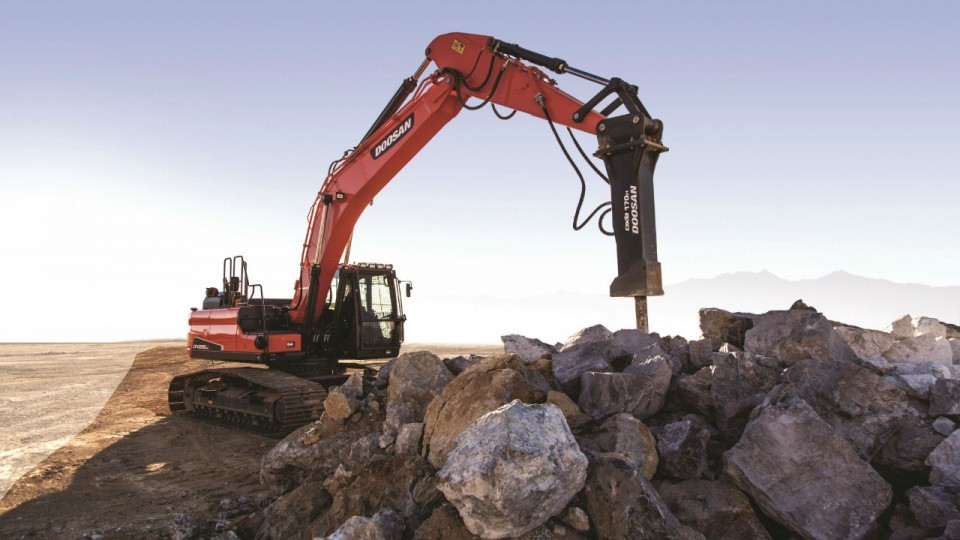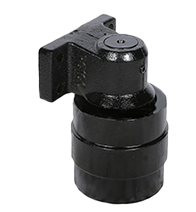
A breaker is a powerful percussion hammer fitted to an excavator for demolishing concrete structures or rocks.
It is powered by an auxiliary hydraulic system from the excavator, which is fitted with a foot-operated valve for this purpose. Demolition crews employ the rock breaker for jobs too large for jackhammering or areas where blasting is not possible due to safety or environmental issues.
Rock breakers are widely used in mining and landscaping applications. Although it can be both stationary and mobile, the rock breaker is most commonly used as a mobile tool because it is more flexible.
With simple but efficient working principle, the purpose of the rock breaker is to apply force to a small piston and to create a mechanical advantage when the constant pressure is redirected through the pipes on a bigger area, producing high force. Today, there are many different types of rock breakers and they differ in terms of weight, size and usage. Every rock breaker is designed to be used for a specific application. The one thing they all have in common is the strong and steel made construction. The weight of the head determines the balance and the efficiency of the whole rock breaker. Logically, the heavier the head, the quicker and more efficient the breaking procedure. Lighter rock breakers are suitable for breaking lighter and smaller rocks.
With a chisel head, rock breakers are also suitable for clearing debris or for brushing applications. This rock breaker is especially used by geologists to clear dust from rocks or fossils. However, all rock breakers are very efficient for a variety of geological explorations.
These days, hydraulic breakers are used more than standard breakers. Hydraulic rock breakers deliver higher force and are quite efficient for larger construction projects. They are based on the theories of fluid mechanics and are consisted of pipes, a motor, pump, special hydraulic liquid and an output device.
Hydraulic rock breakers are very versatile and can be used for construction tasks, demolition works, metal forging and quarry applications. Hydraulic rock breakers crush in both forward and backward directions, and stop once the digging tool is raised. When compared with standard rock breakers, hydraulic rock breakers have a more environmental-friendly impact and generate less noise.

Sign up to our newsletter for the construction machinery